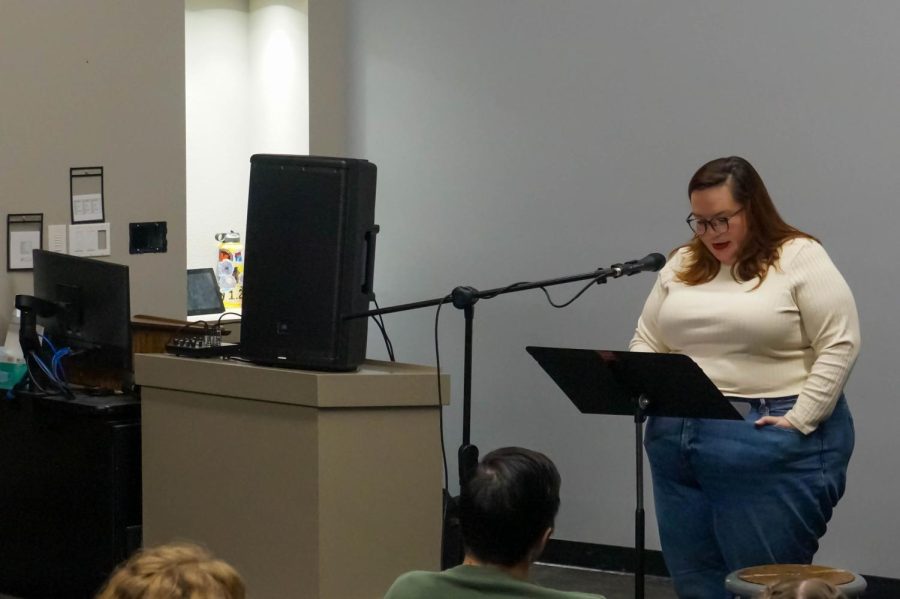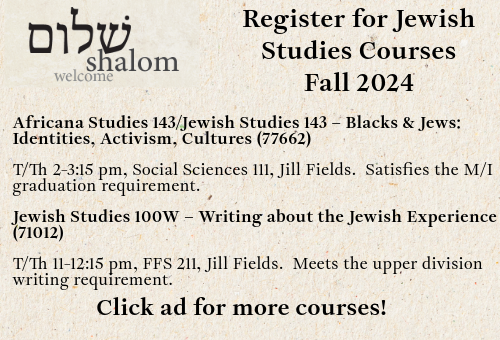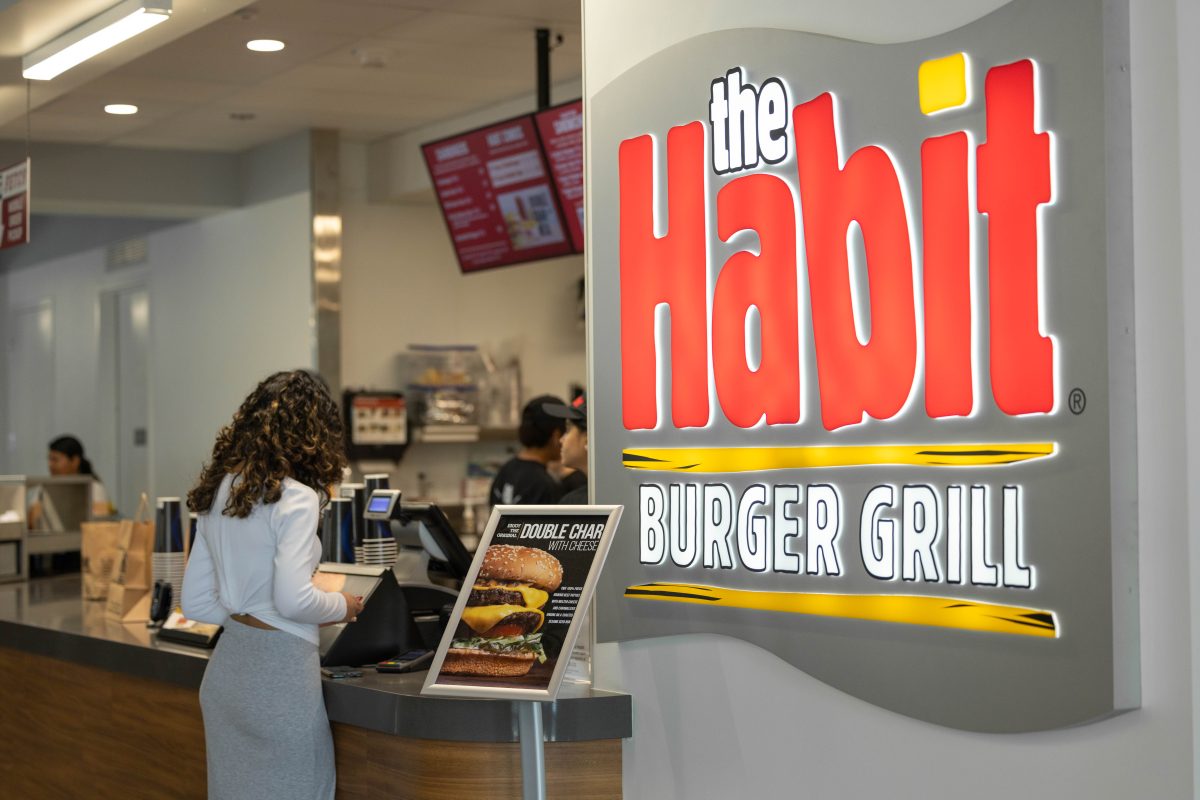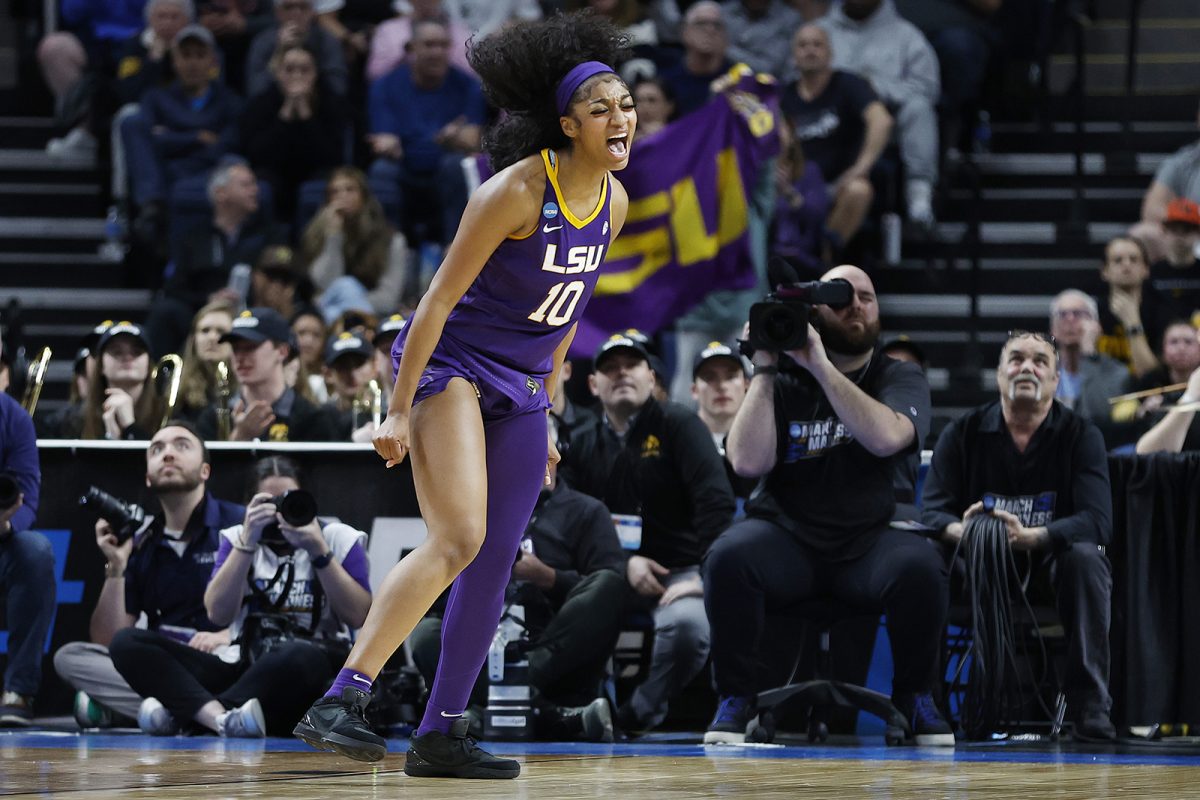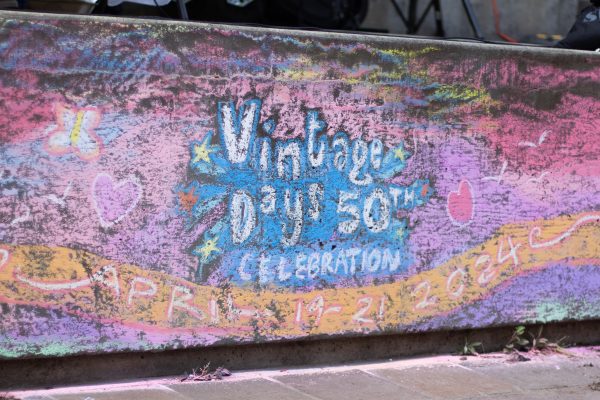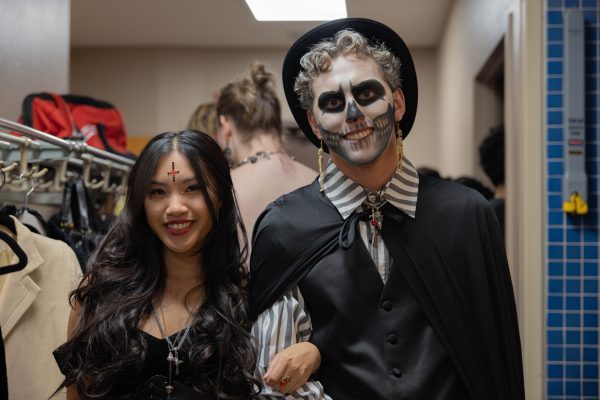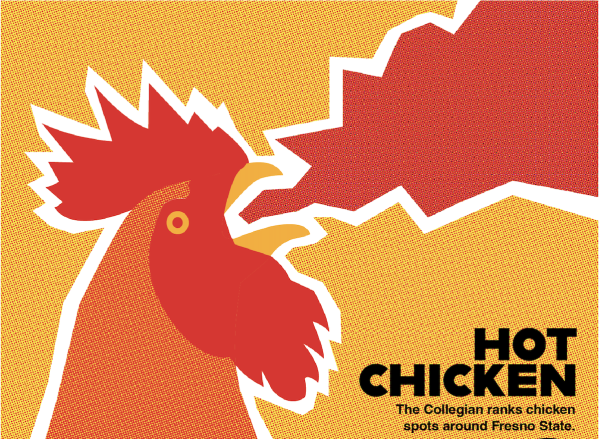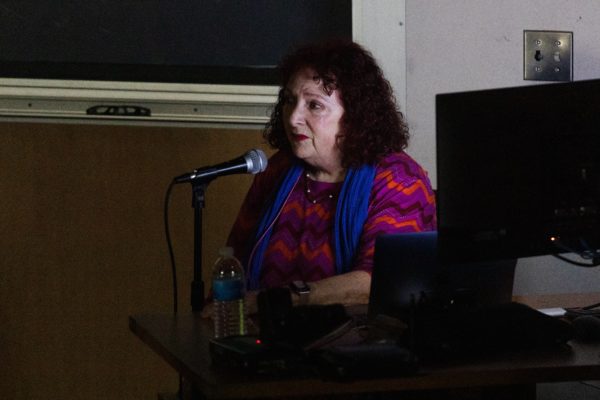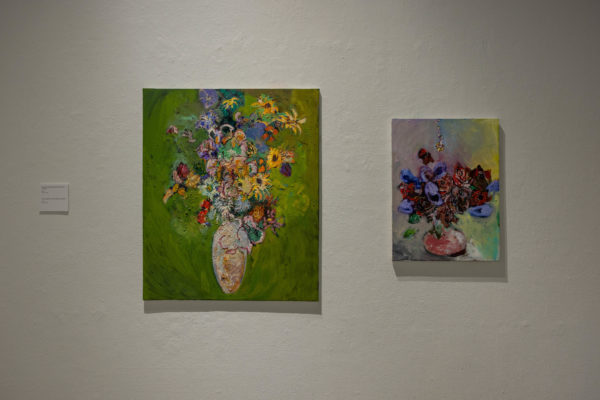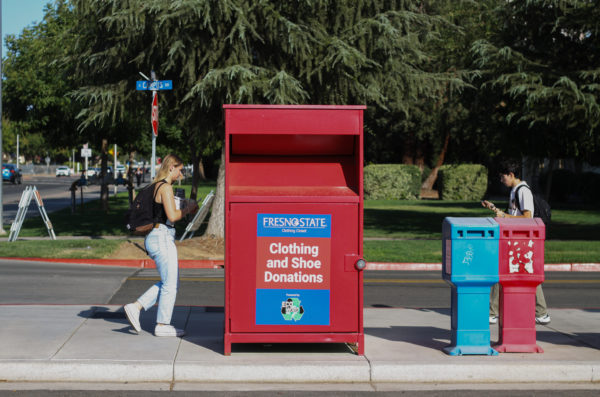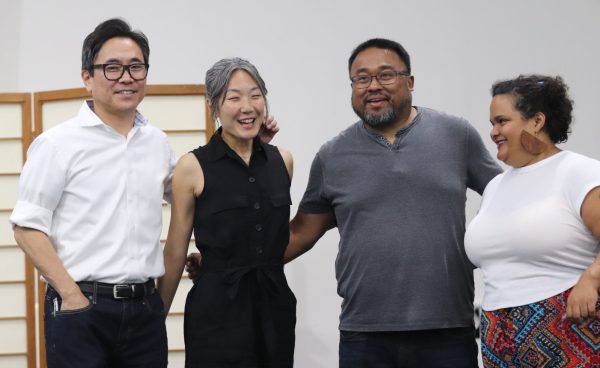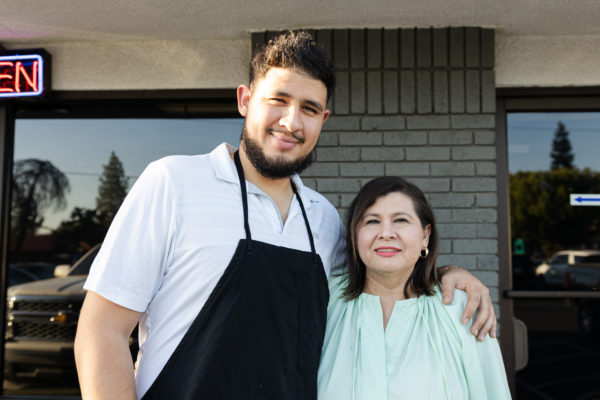Graduate students showcase their talents in creative writing
Feb 17, 2023
Graduate degree candidates Rosie Bates, Amber L. Carpenter, Mialise Carney and Dylon Romo presented their work at the Fresno State Masters of Fine Arts creative writing showcase on Feb. 10.
The showcase was at the Conley Art Auditorium, and each student had respective introductions from the chairs of their thesis committees.
Steven Church, a Fresno State English professor and coordinator of the residential MFA program, began by introducing the first speaker of the night, Carpenter.
“Part of the dance between mentor and student is figuring out how to amplify strengths and work on any weaknesses,” Church said. “The challenge with Amber is that there are so few weaknesses in her writing.”
Church further went on to highlight Carpenter’s abilities as a wise and emotionally vulnerable writer as he introduced her and her essay.
Carpenter, an MFA nonfiction candidate, said her work revolved around body image and the curiosity of identity which comes along with it. Her spoken essay “Show Me a Fat Bitch” exemplified her relationship and interactions with the idea of body image.
This was something prominent throughout different periods of her life, Carpenter said, and pointed this out in her essay.
“I was no longer interested in solving the problem of my fatness or pathologizing down to the exact day when I decided thinness wasn’t a choice for me,” she wrote.
After Carpenter’s essay, John Hales, an English professor at Fresno State, introduced Bates, highlighting the previous work as well.
“Only the most ambitious and graceful writing can make that connection,” Hale said. “That leap from the writer’s life into our own and this is the gift Rosie Bates gives us with her work.”
While introducing her work, Bates mentioned a requirement of writing her thesis: focusing on a particularly hard time in her life. She compared her work to Carpenter’s.
Within her essay, Bates highlighted her previous experiences watching Food Network star Giada De Laurentiis and reflected on her own relationship with food and body perception. Then she referenced Ancel Keys’ work at the end of World War II during a hunger crisis that would lead to the body mass index being a staple of many doctor’s offices.
“When I look for someone or something to blame, I can,” Bates said, reading her essay. “All I know is that when I was growing up, I was encoding the messages from the media I consumed and the words I heard from those in positions of authority. Of course, those authorities are informed, influenced [and] biased by a system that is long overdue for a reexamination.”
Church then introduced Romo, an MFA candidate in fiction.
Church highlighted the themes, setting, dialogue and protagonist found within Romo’s thesis. Church said that through comedic and juxtapositional moments throughout Romo’s story, as well as a voice which lends an empathetic lens, it is easy for the reader to find connection and similitude.
Romo then read an excerpt from his novel “Chasing the Sun.” It follows a junior in high school who longs to be a writer but doesn’t know what to write about, so he chooses to ditch class and go to the beach with friends.
In the story, the audience follows a high school student throughout his day as he makes perceptions of the characters around him. The character has novel interactions and tries to make sense of why the things around him are the way they are.
“A slough of empty bottles lay spread out before them, fusing in the sand and darkness,” Romo read. “They left immediately. The evidence still sprawled about. Over time, those bottles would shatter and crumble until all that remains is sand again. Then, it would be like they were never there at all.”
After Romo, Venita Blackburn, an assistant professor of creative writing at Fresno State, introduced Carney, a MFA candidate in fiction. Blackburn said Carney’s stories have a distinct and acute awareness of what it is to be a woman.
“In her work, Mialese dares to offer the truth anyway,” Blackburn said. “Are you emotionally pickled? Am I? Brace yourselves for the answers to hard questions in the elegant words of Mialese Carney.”
Carney read the last story in her manuscript “The Rage Room,” which follows a mother. In one scene in particular, she thinks of the relationship with her daughter.
“I love her most in the moments when she falls short,” Carney said, reading in the voice of the mother. “Where she slurps, when she drinks and forgets to cross her fingers behind her back when she says ‘I love you’ at night.”
“Lastly, thank you to my friends and co-readers tonight, Dylon, Amber and Rosie,” Carney added. “It’s a privilege and a lot of fun to get to write and learn alongside you and I can’t wait to read all of what you write next.”
The readings are one of three MFA performances scheduled for the rest of the year.




